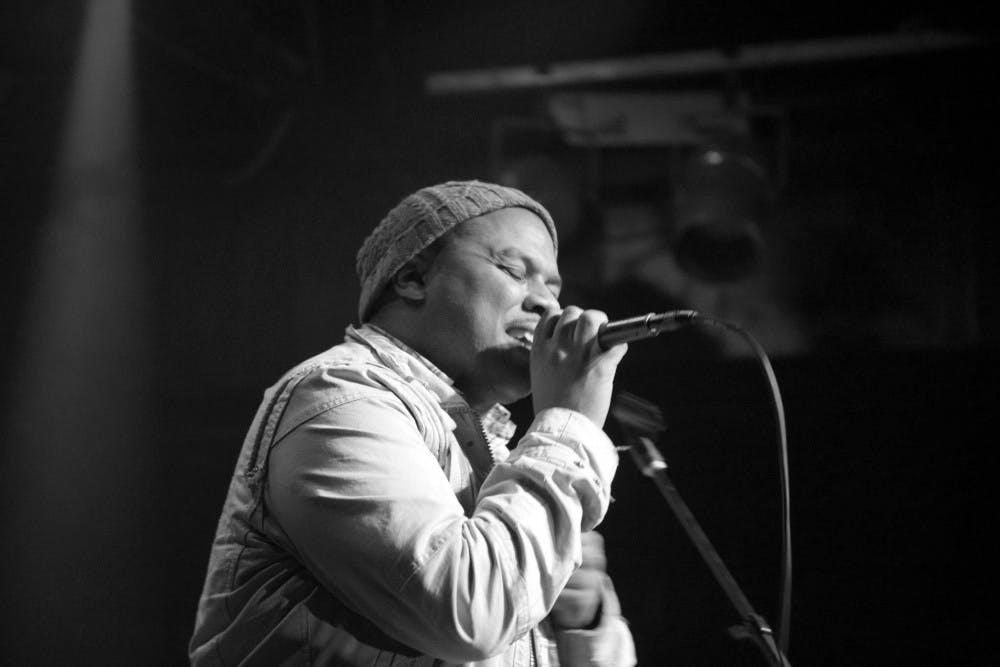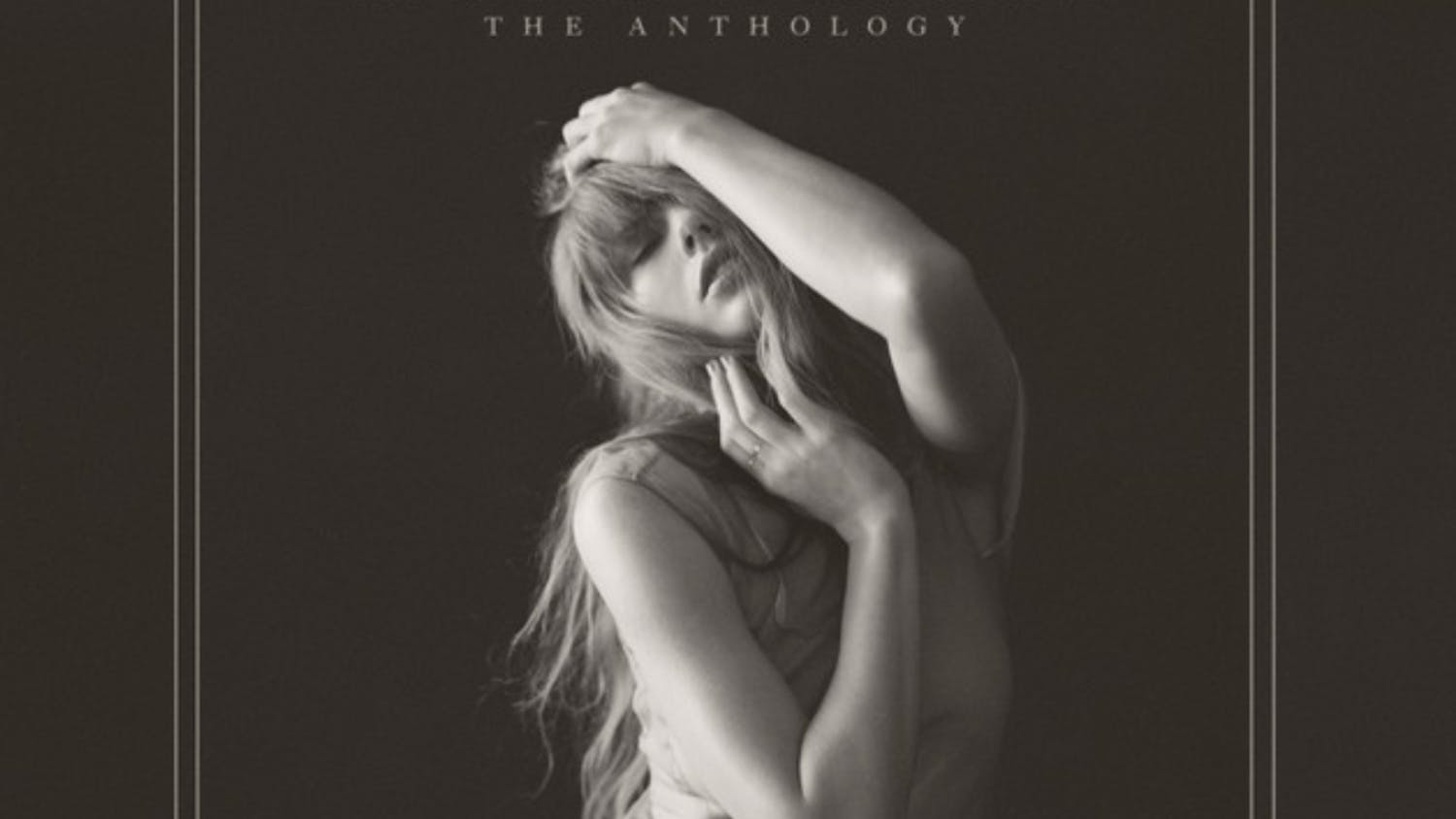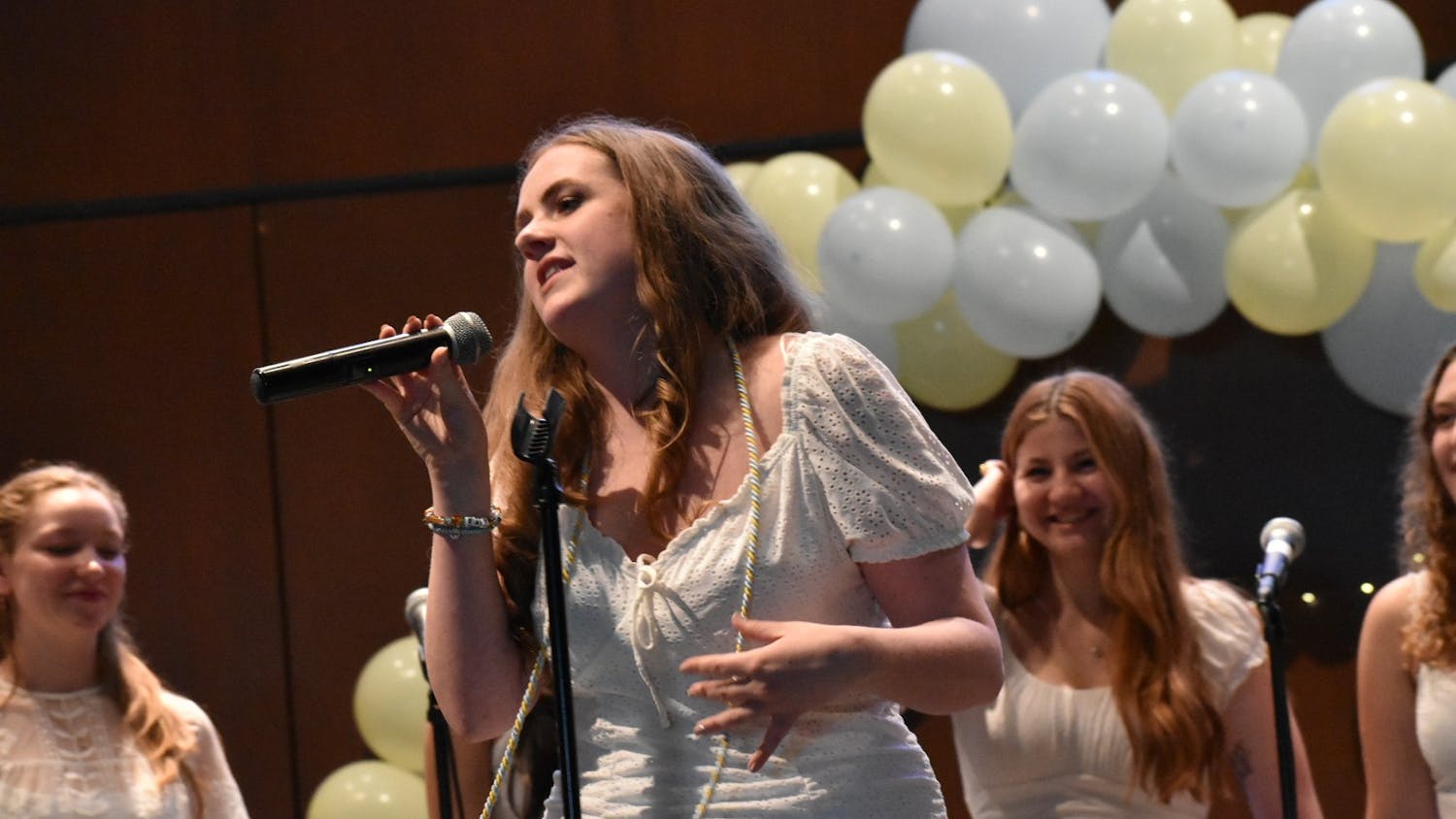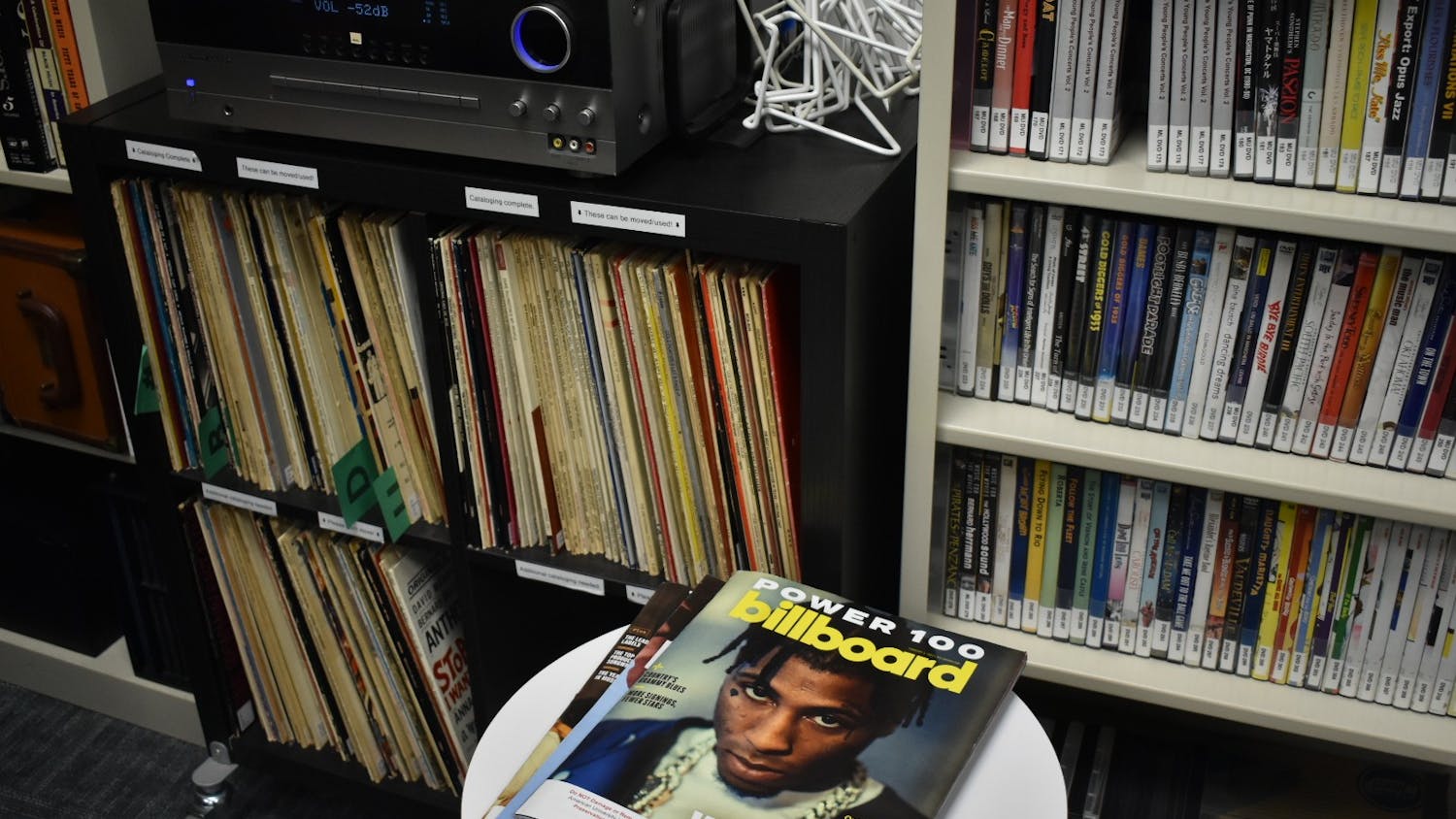The Eagle’s Anagha Srikanth interviewed up-and-coming musician and Reston, Va. local JDVBBS about the January release of his album “subURBAN,” his range of musical talents and his dreams for his career.
Eagle: On Feb. 4, you released a video cover of Sara Bareilles’ song ‘Manhattan.’ Why did you choose that song and how did you insert your own artistry into it?
JDVBBS: I’d been mulling over what song of hers I would cover, because I’m trying to limit my covers to one cover per artist. But when you have an artist as brilliant as Sara Bareilles is, that’s hard. I wanted to cover her because she’s an artist that I think is phenomenal and should get more praise than she does. Her lyrics are about leaving a relationship, and although that’s not the same in my case the idea of leaving Manhattan was something I identified with. I ended up leaving Manhattan not of my own choosing, and wanted to write lyrics that reflected that.
E: Why did you leave Manhattan?
J: My mother is sick — she’s got lymphoma — and I wanted to be close to her before I got my music career launched. So the lyrics, “You can have Manhattan/it’s nothing personal”, it’s like an, “it’s not you it’s me” kind of scenario.
E: Why did you originally move to Manhattan?
J: I wanted to be in a place with my music career where I could be working on music both as a passion and hobby and a career as well. I could be doing music as a job and as a side hustle too. The opportunities in New York City far outweigh the opportunities here in D.C. just because of the area. In D.C. there’s many more political jobs and such, but New York just has such an abundance of opportunities for music and artists. I went there thinking I could get my hands dirty doing a bunch of different things and I wouldn’t have to go broke while I was doing those things.
E: Where did JVDBBS (pronounced Jay Dubbs) come from?
J: It’s a name that as long as I can remember my best friends from childhood were calling me. It was originally spelled with a ‘u’ and it was something that was happening in hip hop and pop culture, taking the first letter of your name and then combining that with your last name. I figured I would stylize it in a way that went along with the hip hop culture in that way and then I changed the ‘u’ to a ‘ v’, because that was something that happened in early written language. In a way it’s fusing hip hop culture and early written language culture as well.
E: You have a background in classical piano, DJing, a cappella and a bachelor’s degree in music from James Madison University. How do all of these influences come out in your music?
J: I tend to use a lot of piano in my album because it’s where I’m most comfortable. It was the first instrument I went about learning. I was maybe seven or eight at the time and I didn’t take lessons, but I was cooped up at my cousin’s house and I just started playing. DJing came out of college, and the blending of different genres and styles and keys is a little bit apparent in my music. I try not to stick one genre. I try to take the most applicable genres as I write and make them a whole new genre, so that it’s stuff that’s both familiar and fresh at the same time. As far as the a cappella, I’ve only put people in my band that can sing – some I sang with in college – so I can be more versatile on stage. A cappella music can be a little bit more intimate and it gives you a little bit more depth when you’re trying to build it up. And then when the “beat drops” it’ll take you on an entirely different journey. Blending both of those gets you on an emotional level because it supplies highs and lows. You can get higher with instruments but then lower with just voices.
E: Your first full-length project “subURBAN” was released in January. How do you feel about the way it’s been received so far?
J: As far as how it’s been received, it’s doing better and moving a little bit faster than I predicted. I love walking into hip hop showcases and rapping to people who live a bit more of a hip hop lifestyle and then showing up with my guitar somewhere and slowing it down. Being able to cross both ways I think is the most exciting part about the way it’s being received. It’s cool that the people who cater to one type of thing get exposed to a bunch of different stuff.
E: There’s a line from your song “Just a rapper…?” that’s also on your Facebook page, “I’m a self-made symphony/ ‘bout to change the industry.” What does that mean for what you want to do with your music?
J: For me I think it means not limiting myself as an artist as far as all creative and encompassing things. I took a music scoring class in school and I think it’s fascinating, so I’d love to get my hands dirty in as many ways as music is used as possible. I want to be able to change the way an artist works in the industry. We’re at the point where people are listening to so many things that it’s easy to cross over and cross-promote. I think stuff like that kind of outlines where we are as a musical generation.
Even though I’m rapping on most of my tracks, I’d love to write for a ballet or write an opera or musical or even go on the road for somebody and open for someone and collaborate with people. I don’t really care as long as my artwork is appreciated. As far as innovation is concerned, I just think the way that music is used, the kind of things you can do to create by coming together with things, you wouldn’t previously have had the capacity to do all that.
E: As a self-made artist, what was the most difficult point of your career and how did you cope with it?
J: The most difficult part of my career has been the sacrifice that you don’t game plan for. It was a little bit of a setback moving home in one sense, but you can also end up getting lost in New York City because there’s a lot of people doing a lot of things and it’s almost a little oversaturated. The demand is much higher than the supply here but it helps me out because, hey, I was born and raised here and my friends still live here so I have that hometown support. I didn’t really even have a full-time job when I got back and now I’m too busy for a full-time job. I’m a little bit broke, definitely, but it’s not as important as I thought it would be going into it. I work at the weekends, DJing and sing at weddings and things, and I’m busy and I’m not like homeless. But the sacrifice that is going into the studio and having to be like, “Oh no, I can’t meet you at happy hour.” Working in the studio 16 hours day to meet deadline is a sacrifice that I was worried about going into process, but now that I’m the other side it’s worth it. Now that I can see what I can do, the things I gave up aren’t as important to me as they originally were.
E: You’re originally from Reston, Va. What does it mean to be from the DMV?
J: For starters I think it gives me a different subject matter to write about, I have different stories and experiences to pull from. I’ve never truly worried about my safety growing up in the DMV area, which is pretty well off as far as education and finance. Growing up outside of a major city has its ups and downs. There are plenty of people with nice high paying jobs, but also plenty of people I know who were trying to get out of Southeast D.C. Having those sets of friends growing up in this area gives me a little bit of more unique perspective on life, so that’s what I choose to write about more often than not. Just because I didn’t have to overcome as much, doesn’t mean I don’t have as much talent, but it’s more of an internal struggle than an external struggle. Definitely when I’m writing, I don’t want to be counted out because I’m some guy from the suburbs, it’s like, “What does he know about hip-hop?” People who are rapping from the inner cities want to give their kids now what my parents gave to me, so it’s rude I think for people to write off suburban rappers. It’s a privilege definitely as a person to have grown up in the DMV, maybe it’s a bit of a curse as a hip hop artist but it’s something that I’ve been overcoming.
E: You’ve performed on a wide assortment of stages – what has been your most rewarding experience?
J: As far as the last three months, it’s been great coming out and seeing the fruits of my labor being sown. I’m getting pretty close to selling out my own shows and standing on stage, you can kind of get lost in the crowd. I performed at Jammin’ Java [in January] and I had my closest friends both from this area and New York. One of my backup singers drove up from North Carolina in the midst of getting a new job in a different state, my manager flew in from L.A., and one of my friends flew up from Georgia. It was first nature to them, like the support I have from them; they didn’t think anything about it. There were people I haven’t seen in 15 years and it was good to know that I have the support of my friends. They’re helping me get started on what I think is my dream, doing what I love to do and getting paid for it, even though it’s not a lot.
E: What would be your dream gig?
J: My dream gig would be like one of those surprise Grammy or surprise Super Bowl mash-ups. I’m on stage singing whatever hit song I put out at the time, but like a brand new never heard before live rendition, and halfway through Prince walks out, grabs his guitar and shreds on it. Everyone’s going crazy, I switch to the next song and then it’s like, “Oh it’s Jay-Z”. Then I bring the emotion down, and it pans over to like Stevie Wonder playing the piano ever so beautifully and I sing some ballad. Then we all rock out to my last song. If some way I could combine those three into one performance, it would be a dream.
E: What should our readers expect from you in the following months?
J: I’d just say to keep watching. We’re going to be littering 2014 with a lot of musical surprises if you will. There will be different tracks dropping on different social media platforms. We just put out a new video – that cover of Sara Bareilles – no one saw it coming. So we’re not really telling people so stay very much tuned to my feeds, my Facebook, Twitter, Instagram, it’s the best way to stay in the know.





